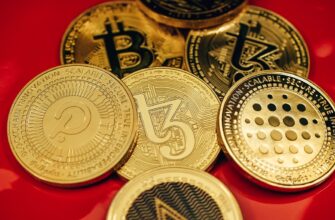- Why Sell Bitcoin Without KYC in Miami?
- Legal Considerations for Non-KYC Bitcoin Sales
- Top 4 Methods to Sell Bitcoin Without KYC in Miami
- 1. Peer-to-Peer (P2P) Marketplaces
- 2. Bitcoin ATMs (Limited KYC)
- 3. In-Person Cash Trades
- 4. Decentralized Exchanges (DEXs)
- Safety Checklist for Non-KYC Bitcoin Sales
- FAQ: Selling Bitcoin Without KYC in Miami
- Conclusion: Balance Privacy and Prudence
Why Sell Bitcoin Without KYC in Miami?
For Miami Bitcoin holders, selling without KYC (Know Your Customer) verification offers unmatched financial privacy. Whether avoiding identity-linked transactions, bypassing exchange delays, or handling smaller personal sales, non-KYC options provide flexibility. Miami’s crypto-friendly environment—with its tech-savvy population and Bitcoin ATMs—makes it ideal for private transactions, but safety and legality must remain top priorities.
Legal Considerations for Non-KYC Bitcoin Sales
Selling Bitcoin without KYC is legal in Miami if conducted properly. However:
- Tax Compliance: You must report capital gains to the IRS regardless of KYC status.
- Anti-Fraud Laws: Avoid transactions with unknown/unverified parties to prevent money laundering risks.
- Local Regulations: Florida requires licensing for money transmitters—individual peer-to-peer sales are exempt for personal transactions.
Top 4 Methods to Sell Bitcoin Without KYC in Miami
1. Peer-to-Peer (P2P) Marketplaces
Platforms like LocalCryptos and Paxful connect Miami sellers directly with buyers. Transactions use escrow protection, and payment methods include cash, bank transfers, or gift cards.
- Pros: Flexible pricing, multiple payment options, escrow security
- Cons: Higher fraud risk; requires vetting buyers
2. Bitcoin ATMs (Limited KYC)
Select Miami Bitcoin ATMs allow sales under $900 without ID. Use CoinATMRadar to find machines with “sell” functionality and low-KYC policies.
- Pros: Instant cash, anonymous for small amounts
- Cons: Fees (7-15%), strict transaction limits
3. In-Person Cash Trades
Meet buyers at safe public locations like coffee shops or police station lobbies. Use platforms like LocalCoinSwap to arrange deals and always verify cash before releasing BTC.
- Pros: No digital trail, immediate settlement
- Cons: Physical safety risks; price negotiation challenges
4. Decentralized Exchanges (DEXs)
Swap BTC for stablecoins like USDT on non-custodial platforms (e.g., Bisq or Hodl Hodl), then sell for cash locally. No ID required.
- Pros: Fully anonymous, global access
- Cons: Technical complexity; no direct fiat withdrawal
Safety Checklist for Non-KYC Bitcoin Sales
- 🔒 Use Escrow: Never release BTC before confirming payment.
- 📱 Verify Buyers: Check trade history and ratings on P2P platforms.
- 🏦 Meet Safely: Choose public spots like Brickell City Centre or police-monitored zones.
- 💱 Know Market Rates: Avoid lowball offers—compare prices on CoinGecko.
- 📉 Start Small: Test new buyers with minor transactions first.
FAQ: Selling Bitcoin Without KYC in Miami
Q: Is selling Bitcoin without KYC legal in Miami?
A: Yes, for personal transactions. However, structured transactions to evade reporting requirements violate federal law.
Q: What’s the maximum I can sell without KYC?
A: Most ATMs cap at $900/day. P2P limits vary by platform—build reputation for higher thresholds.
Q: Do I still pay taxes on non-KYC sales?
A: Absolutely. The IRS requires reporting all crypto gains, regardless of verification methods.
Q: How do I avoid scams?
A: Use platform escrow, refuse advance payments, and never share private keys. Meet only in secure locations.
Q: Are Bitcoin ATMs safe for selling?
A: Reputable operators like CoinFlip or Bitcoin Depot have tamper-proof machines, but fees are higher than P2P.
Conclusion: Balance Privacy and Prudence
Miami offers diverse options to sell Bitcoin without KYC—from P2P platforms to ATMs and cash meetings. Prioritize platforms with escrow, verify counterparties thoroughly, and always comply with tax obligations. For large transactions, consider regulated exchanges despite KYC; for smaller private sales, Miami’s ecosystem provides reliable anonymity when approached cautiously.








